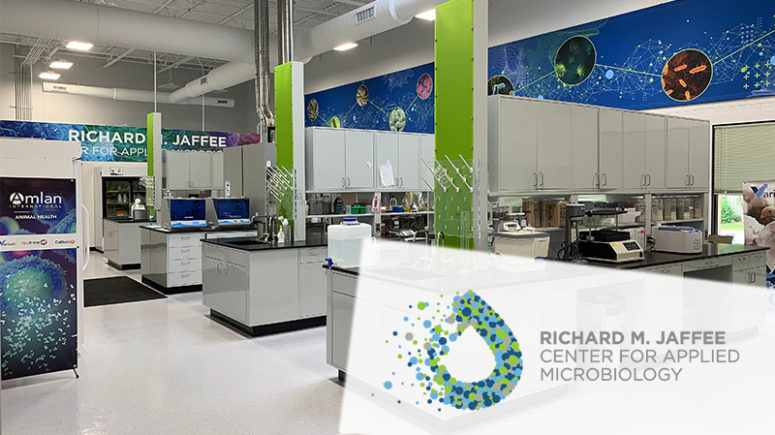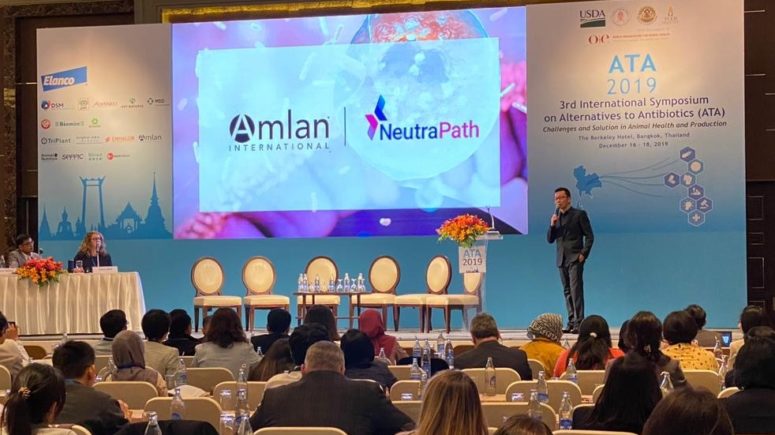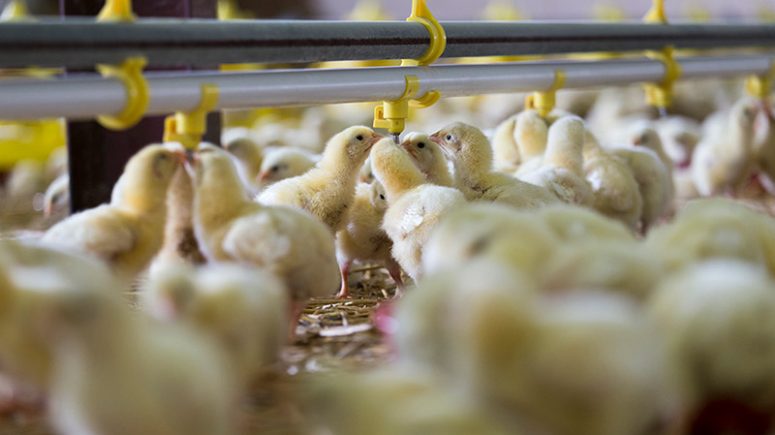Products that prevent pathogenic bacteria from communicating with each other? This is just one of the next‑generation technologies that scientists are developing at Amlan International’s innovative new and improved Richard M. Jaffee Center for Applied Microbiology.
Amlan’s commitment to microbiology research began when their original laboratory opened in 2017 and further strengthened with the expansion of the Richard M. Jaffee Center for Applied Microbiology in October 2019. The new center provides the company with a cutting‑edge facility to accelerate novel animal health and life sciences research. With state-of-the-art equipment, the R&D team can isolate and cultivate both beneficial and pathogenic bacteria and investigate the antimicrobial effects of Amlan’s next‑generation, natural products.
The new lab is a certified Biosafety Level 2 laboratory, equipped with the technical and diagnostic resources of a traditional microbiology lab, as well as molecular biology, immunology and cell biology capabilities. It’s located near the company’s original R&D center, the Nick Jaffee Center for Innovation in Vernon Hills, Illinois. The 6,000-square-foot facility houses the life sciences team and a high‑tech laboratory space.
Novel Approach to No-Antibiotics-Ever Production
By developing innovative animal health solutions for Amlan’s customers, the research team is simultaneously tackling the global issue of antibiotic resistance. The scientists are using an antivirulence approach to control enteric disease in livestock by developing products that can modify pathogen behavior, making them less virulent (friendlier). This antivirulence approach can improve the production and health of flocks or herds while reducing the tendency to select for resistant or mutant bacteria that is seen with the use of conventional antibiotics.
“The new lab allows our life science research team to access a wide variety of state-of-the-art equipment, such as real-time PCR, an anaerobic chamber and florescent microscopy,” says Dr. Hongyu Xue, Life Sciences Director at Amlan. “We are trying to disarm the microbial pathogens by targeting their virulence factors in this facility.”
The life sciences team can also analyze the synergistic capabilities of the company’s proprietary enterosorbent mineral formulated with other feed additives, leading to the development of new products that can provide even greater returns on investment for poultry and livestock producers.
By incorporating best production practices, natural feed additive programs and pioneering innovation that targets virulence factors, producers should be able to reduce inputs in animal diets, enhance intestinal health of food animals and improve production efficiency for the entire industry.
“This new lab enables us to bring new ideas and products to the marketplace like never before,” says Flemming Mahs, President, Amlan International. “Science and research are the foundation of our discovery process to improve animal performance by protecting their intestinal health.”
Stay tuned for more information about the innovative research conducted inside the Richard M. Jaffee Center for Applied Microbiology.



